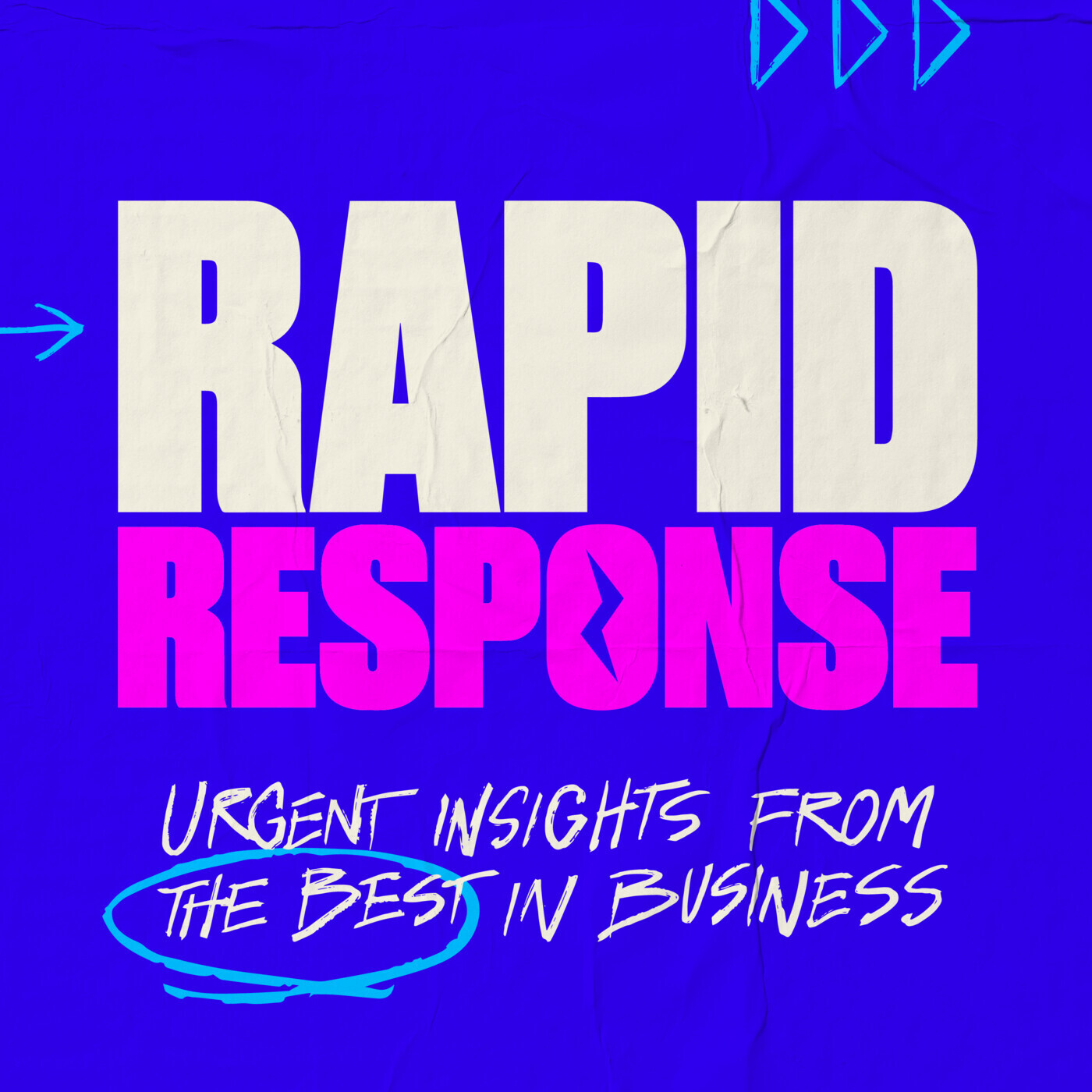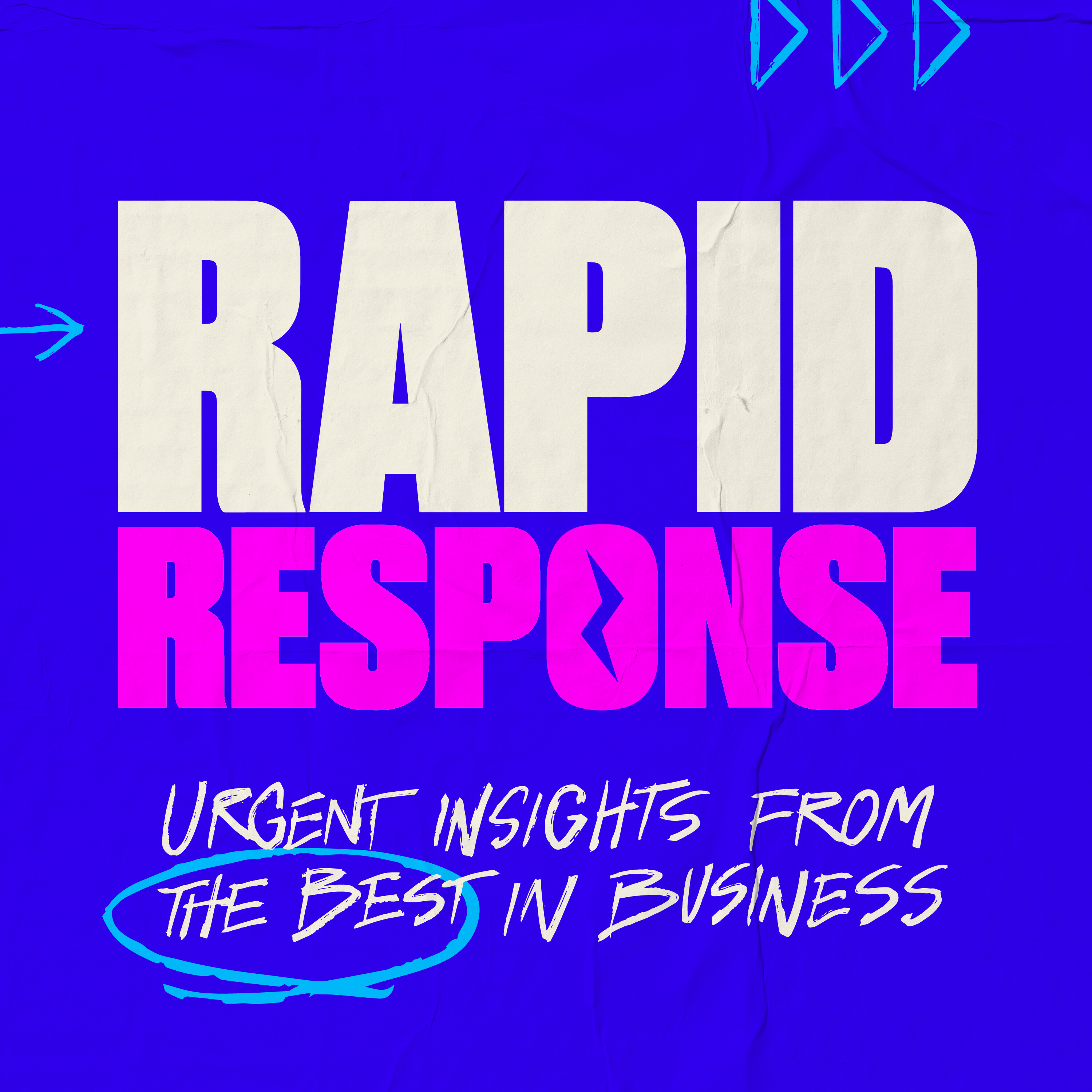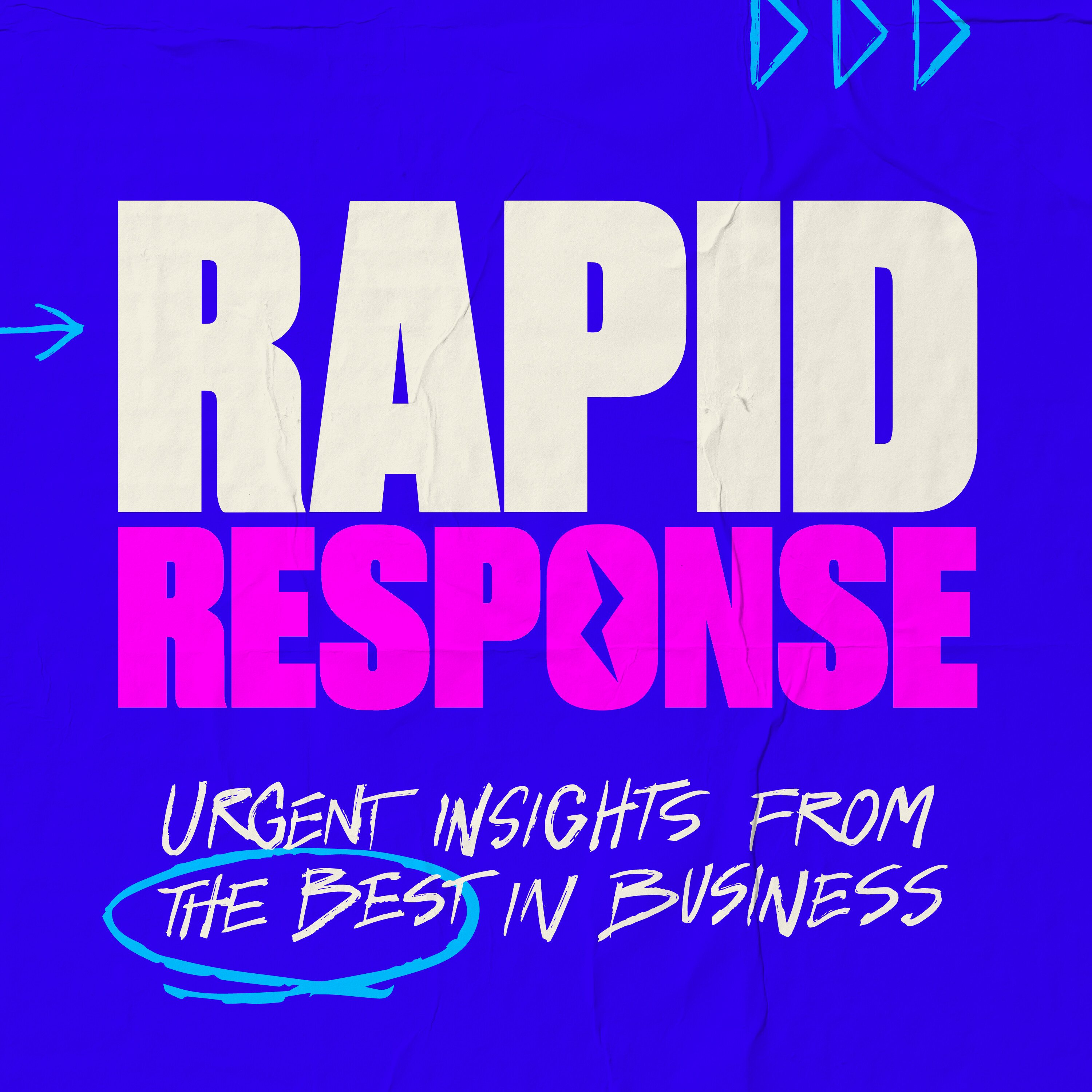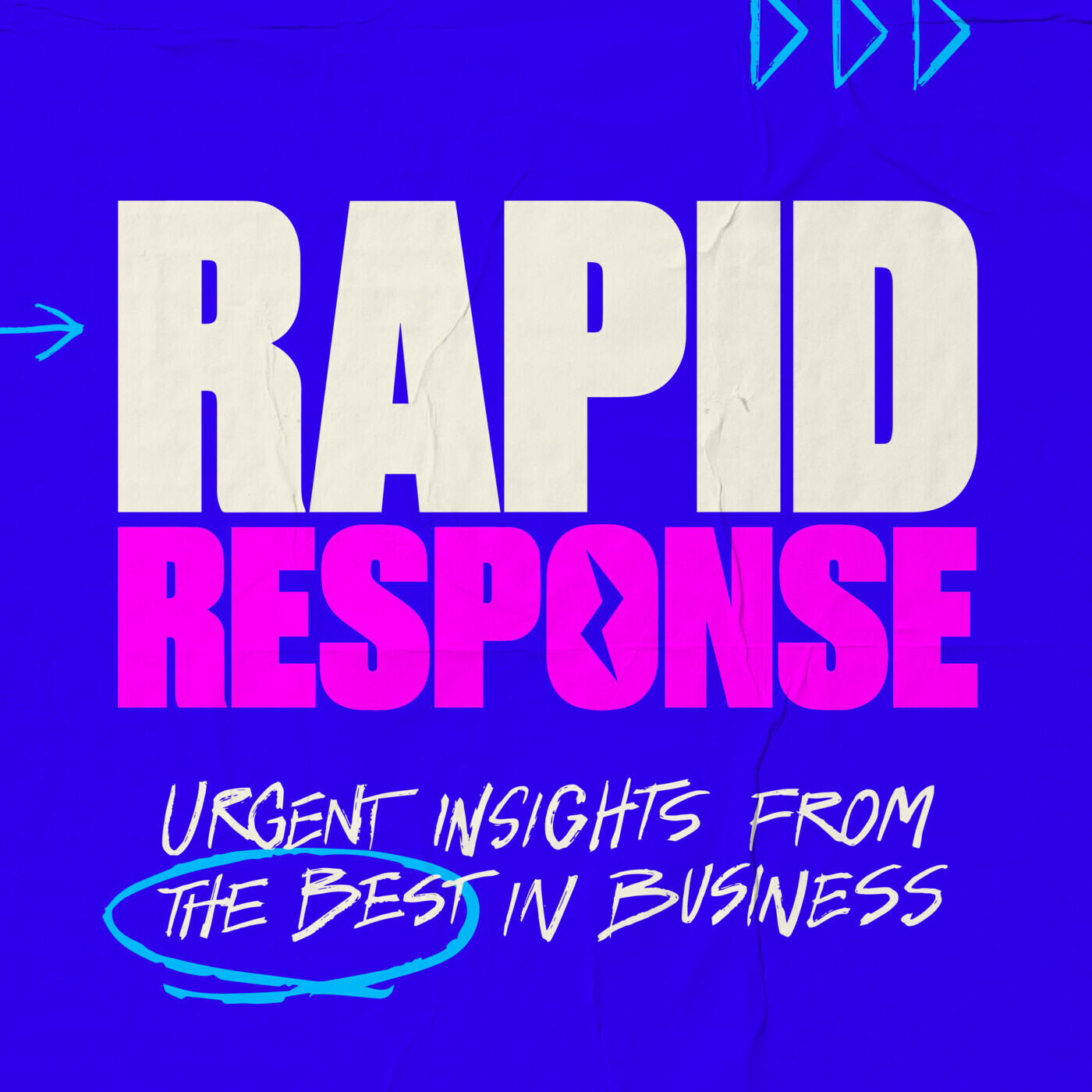
August 20, 2024 • 27min
Rapid Response: CNN’s Van Jones on Kamala’s glow-up, AI “wetware,” Elon Musk, and more
Masters of Scale
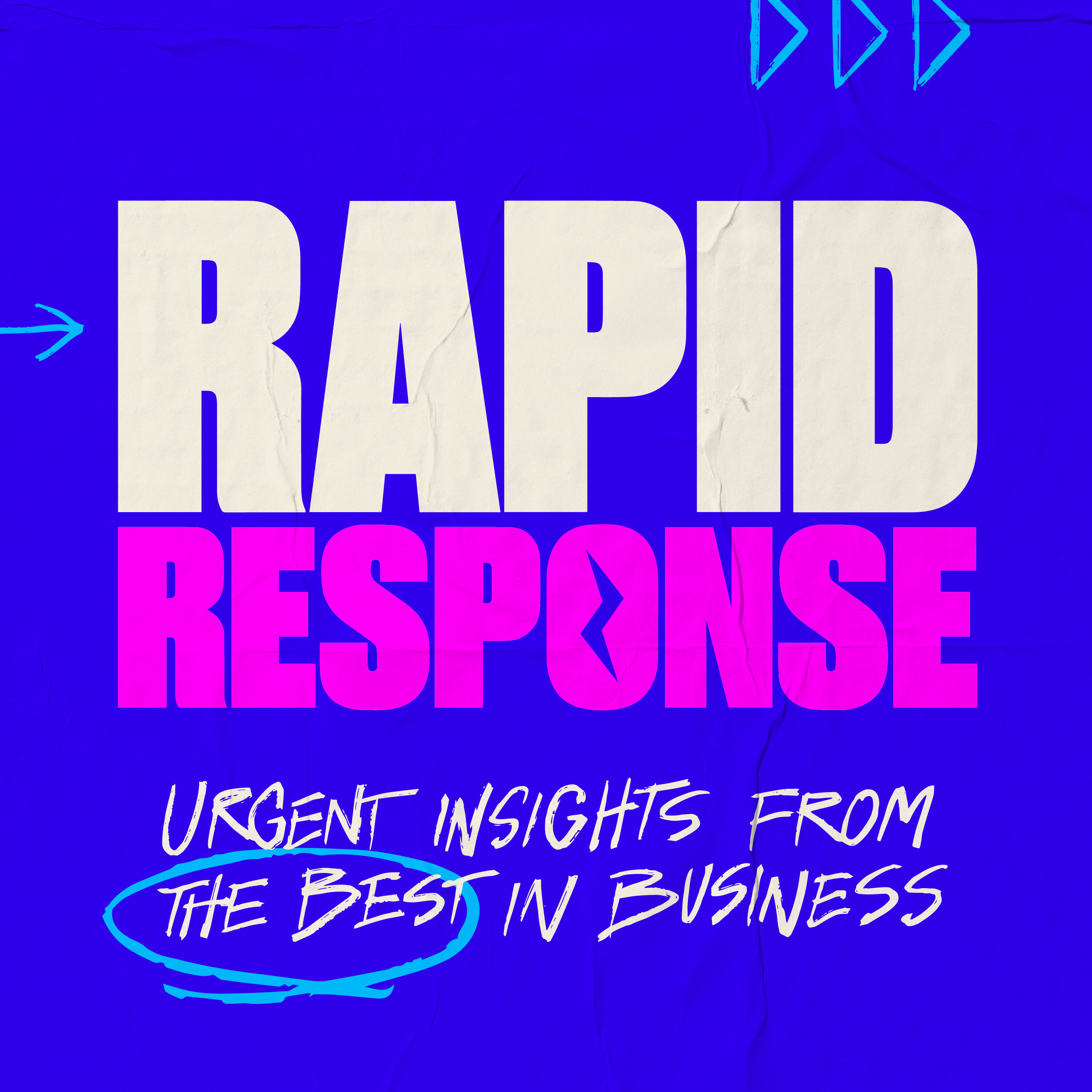
Key Takeaways
- Van Jones believes technologists, not politicians, are shaping the future and creating a new human civilization
- He launched the "Dream Machine" initiative to open up AI access for underrepresented communities, especially Black and Latino youth
- Jones argues the "digital divide" is now more of a "wetware" (mindset) problem than a hardware problem - many have smartphones but don't see tech as "for them"
- He wants to put the positive potential of AI "on the menu" for overlooked communities, believing they could create amazing innovations
- Jones sees Vice President Kamala Harris as potentially more tech-savvy than Biden due to her Bay Area roots and Silicon Valley connections
- He believes the 2024 election is highly consequential, with stark differences between candidates and potentially long-lasting impacts
- Jones sees parallels between 2024 and 1968 in terms of social/political upheaval and technological change
- He argues business leaders and technologists need to think deeply about societal issues like caring for neighbors and expanding the American dream
Introduction
Van Jones is a political commentator for CNN, author, and entrepreneur. His latest initiative called Dream Machine focuses on opening up AI access for underrepresented communities. In this episode, Jones discusses the intersection of technology and politics in the current moment, including how Kamala Harris's view of AI may differ from Joe Biden's, the evolution of Elon Musk, and key issues he believes are being neglected in the campaign. Jones provides a blunt, skeptical, yet ultimately inspirational perspective, connecting today's moment to historical parallels like 1968.
Topics Discussed
The Rapid Shift in the Democratic Presidential Race (2:33)
Jones reflects on the dramatic changes in the Democratic presidential race over the past month:
- He's never seen anything like Biden's poor debate performance and subsequent withdrawal
- Kamala Harris went from being "cringy" to "Beyonce-like" almost overnight in terms of popularity
- The speed and scale of the shift is unprecedented in Jones' experience covering multiple election cycles
"She goes from being like, you know, this kind of, like, do we have a vice president? Where is she to like, beyonce in a week?" - Van Jones
The Dream Machine Initiative (4:08)
Jones explains his new Dream Machine initiative focused on AI access for underrepresented communities:
- He believes technologists, not politicians, are shaping the future and creating a new human civilization
- The initiative aims to get young people from overlooked communities excited about AI's potential
- It's called "Make Wakanda Real" to inspire imagination about using tech to solve problems
"The technologists are the ones who are basically creating a new human civilization right before our eyes." - Van Jones
The "Wetware" Problem in Tech Access (7:43)
Jones argues the "digital divide" is now more of a mindset issue than a hardware problem:
- Most people have smartphones and could access AI tools, but many don't see tech as "for them"
- It's about belief and self-confidence more than physical access for many communities
- He wants to put the positive potential of AI "on the menu" for overlooked groups
"In your mind, do I believe that this stuff is for me? Or is it for someone else? Is it for the white folks, for the rich folks?" - Van Jones
Potential for Innovation from Underrepresented Communities (10:53)
Jones highlights the creative potential of overlooked communities if given access to AI tools:
- Points to hip-hop as an example of technological innovation from the Black community
- Believes these communities could create amazing innovations with AI if given the opportunity
- Wants to focus on the opportunity side, not just protection from AI harms
"We took two turntables and a microphone in the Bronx and created hip hop, which is now bigger than any the musical genre. That was technology." - Van Jones
Kamala Harris's Potential Tech Perspective (17:59)
Jones speculates on how Kamala Harris may approach tech issues differently than Biden:
- Harris is from the Bay Area and has long-standing Silicon Valley connections
- She's a different generation than Biden and likely more tech-savvy
- Her background could significantly impact her tech policy approach
"Kamala knows a bunch of people in Silicon Valley, and she's known them for a long time. I can't help but imagine that that won't have a big impact on how she thinks about this stuff as opposed to lunch bucket Joe Biden from another century on another coast." - Van Jones
Neglected Issues in the Campaign (19:09)
Jones expresses frustration that deeper issues are being neglected in the campaign:
- Believes there's a spiritual crisis and sense of loss in the country
- Concerned about growing anxiety and disconnection between neighbors
- Wants more focus on threats from authoritarian regimes globally
"I think we have a real spiritual crisis in the country. People are hurting, man. I think people feel lost." - Van Jones
Stakes of the 2024 Election (22:42)
Jones outlines what he sees as the high stakes in the upcoming election:
- Believes the direction of society is at stake if Trump's worst potential emerges
- Sees Harris's downsides as more survivable (e.g. government spending)
- Worries Trump could cause damage that takes decades to fix
"The worst from Donald Trump. I don't know. Is it 50 years to fix? 20 years, 100 years? I mean, how do you fix that stuff?" - Van Jones
Business Leaders and the Political Center (24:33)
Jones discusses the role of business leaders in politics:
- Concerned that many business leaders are moving in "scary" directions politically
- Points to Elon Musk's shift from supporting Andrew Yang to backing Trump
- Wants to see more of the "old Elon Musk" focused on innovation
"I like Elon Musk when he's trying to figure out how to get to space and how to make clean cars and how to get innovation in government going with Andrew Yang. That's a massive asset to humanity." - Van Jones
Parallels Between 2024 and 1968 (25:55)
Jones draws comparisons between the current moment and 1968:
- New technology (color TV then, AI now) changing perceptions
- Unpopular Democratic incumbent not running for re-election
- A Kennedy entering the race late
- Democratic convention in Chicago
"It's literally like a glitch in the matrix. But to me, what I take away from it is a lot more as possible than we think." - Van Jones
Conclusion
Van Jones provides a thought-provoking perspective on the intersection of technology and politics in 2024. He sees immense potential for AI to empower underrepresented communities, but also deep challenges in American society that aren't being adequately addressed in the political discourse. Jones draws parallels to 1968, suggesting 2024 could be a similarly transformative year. He urges business leaders and technologists to think deeply about societal issues and their role in shaping the future. Ultimately, Jones strikes a note of cautious optimism, emphasizing that unexpected positive changes are always possible.

